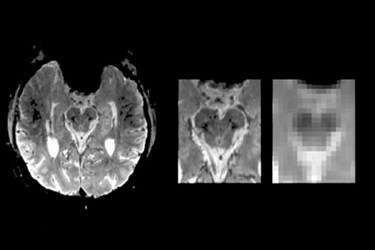FDA Issues Draft Guidance For IDEs For Neurological Devices
By Jof Enriquez,
Follow me on Twitter @jofenriq

The U.S. Food and Drug Administration (FDA) released a draft guidance for sponsors who wish to submit an investigational device exemption (IDE) to conduct trials for devices intended to slow, stop, or reverse the effects of neurological diseases, including Alzheimer's disease, Parkinson's disease, or primary dystonia.
"FDA believes that neurological devices intended to slow disease progression and improve clinical outcomes that are meaningful to patients may represent a revolutionary option for patients. This draft guidance provides considerations for the research and development of such devices, as well as FDA review considerations to aid in the promotion of this innovative sector of technology," FDA states in the document.
The draft guidance provides general considerations for studies of neurological devices using biological markers and clinical outcome assessments.
Biomarker tests using imaging (e.g., MRI) that indicates anatomical changes may not necessarily correlate with disease progression and clinical outcomes, according to the agency. Thus, FDA suggests that, "when biomarkers are chosen
as a metric, there should be well established evidence and agreement in the clinical community that the chosen biomarker test reflects a characteristic that is important to the underlying disease process and that it is associated with a clinically meaningful outcome measure."
FDA says device sponsors, therefore, should provide supporting studies for the validation of biomarker tests used in previous clinical trials in their proposals.
The agency acknowledges the potential of biomarkers in diagnosing and measuring neurological conditions, as evidenced by a public workshop aimed to examine potential biomarkers for Traumatic Brain Injury (TBI) amid growing concerns about concussions in athletes and civilian populations. GE Healthcare and Banyan Laboratories are helping advise FDA on the matter.
FDA says clinical outcome assessments in neurological device studies "should consist of direct quantitative measurement of the effect of a treatment upon disease progression and its impact upon the patient. Clinical outcome assessments include patient-reported, clinician-reported, and observer-reported outcomes such as symptom reduction, decreased need for medication, or improvement in functional and quality of life measures."
The agency also notes that "the patient population, the nature of the underlying condition, and how they will be studied over time should be considered when developing clinical effectiveness endpoints."
In terms of clinical trial designs, sponsors should distinguish between symptomatic benefit(s) and disease-altering benefit(s) that slow disease progression, and quantify the magnitude of such benefits in terms of biomarkers and clinical outcome assessments. When necessary, such assessments should be prolonged to determine effectiveness of a device to slow disease progression, in comparison to established, conventional therapies.
FDA recommends "early engagement" of sponsors with The Center for Devices and Radiological Health (CDRH), through the pre-submission process, about their prospective trial designs.
According to FDA, an IDE application must include a complete investigational plan, or a summary thereof, that contains the description of the device and its functional components, as well as copies of all labeling, including patient information, for the device. It should also include a written overview describing all anticipated phases of the clinical investigation (e.g., feasibility and pivotal study stages).
As for safety, "The choice of a primary safety endpoint and tracking potential adverse events will depend on the device design and the patient population for which the device is indicated."
"FDA may disapprove an IDE application if there is reason to believe that the risks to the subjects outweigh the anticipated benefits to the subjects and the importance of the knowledge to be gained," states the agency. "Assessment of benefits and risks should not necessarily be made in comparison to the most technologically advanced alternative but rather to commonly used therapies and treatments."
According to RAPS, FDA recommends that an informed consent document for a neurological device describe:
- the possibility that the proposed treatment may have little or no effect upon halting or delaying the progression of the disease, or could increase rate of progression;
- options for discontinuing participation in the study should the subject be dissatisfied with the study; and
- the potential need for long-term follow up to evaluate the effect of the treatment.
